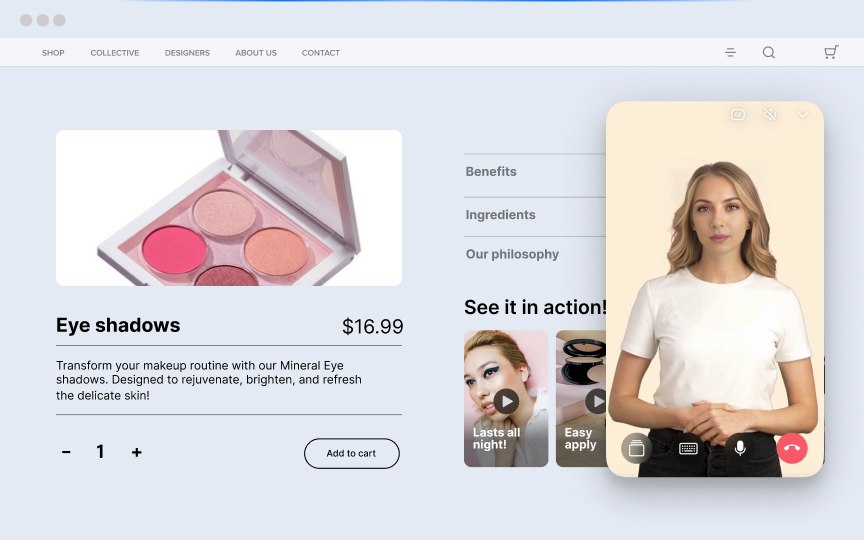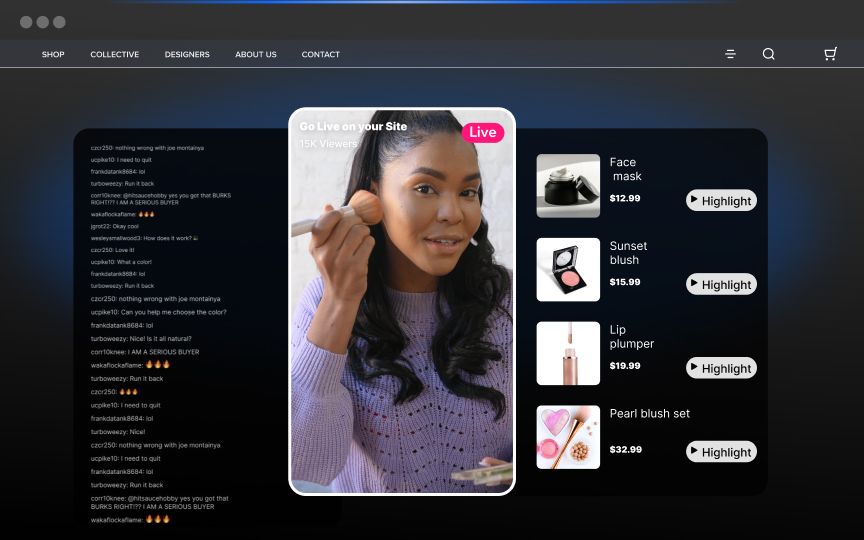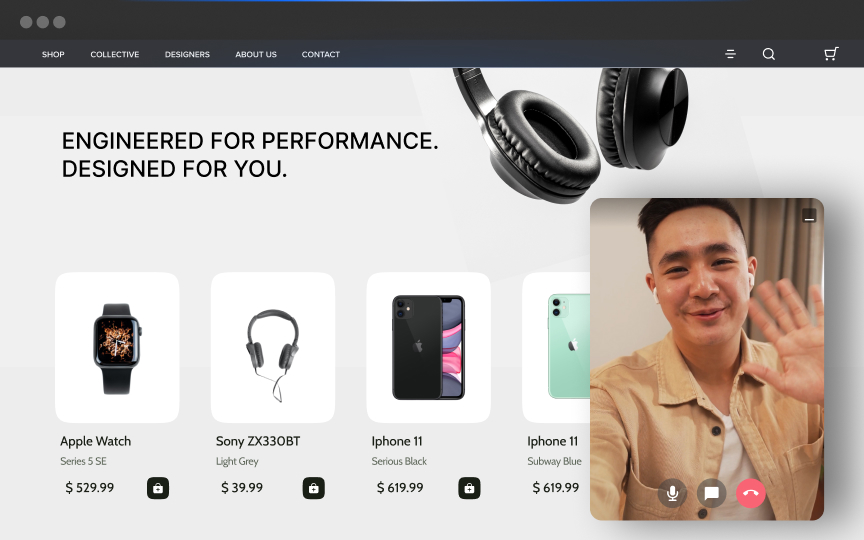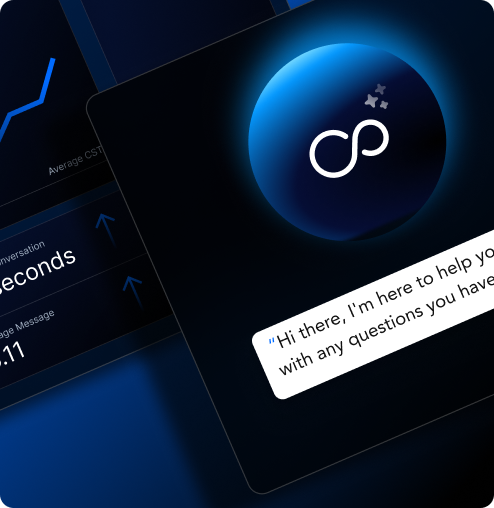Feeling the pressure of the holiday rush? You're not alone. The holiday season can make or break your annual revenue, and if you're not prepared, you could miss out on a significant chunk of sales. But don't worry, we've got your back with an Ecommerce Holiday Readiness Checklist to help you navigate this busy time.
What is an Ecommerce Holiday Readiness Checklist?
An Ecommerce Holiday Readiness Checklist is your ultimate guide for preparing your online store for the holiday shopping frenzy. It covers everything from website optimization and inventory management to marketing campaigns and customer service.By following this checklist, you'll be ready to handle the surge in traffic and sales, keeping your customers happy and your store running smoothly.Ever had your website crash on Black Friday? Or found yourself out of stock on a best-seller? These are the nightmares we want to help you avoid. Let's dive into why this checklist is so crucial.
Why is an Ecommerce Holiday Readiness Checklist Essential?
An Ecommerce Holiday Readiness Checklist is essential because it helps you maximize sales and revenue during the peak shopping season. The holidays are when consumers are most willing to spend, and a well-prepared plan ensures you capture as much spending as possible. A checklist keeps you organized, allowing you to focus on high-impact activities like targeted promotions and optimized product listings.Are your customers bouncing off your site because it's too slow? Or are you losing sales due to out-of-stock items? These are common issues that a readiness checklist can help you mitigate.
Assess Previous Holiday Performance
Start by reviewing how your store performed last holiday season. Look at sales data, customer feedback, and website analytics to identify what worked and what didn't. This will help you understand trends, customer preferences, and areas that need improvement.Clear goals can make all the difference. What do you want to achieve this holiday season?
How to Create an Effective Ecommerce Holiday Readiness Checklist
Setting clear goals and objectives for the holiday season is crucial. Define specific, measurable goals such as increasing sales by a certain percentage, reducing cart abandonment, or improving customer satisfaction. Clear objectives guide your efforts and help you focus on what matters most.Feeling overwhelmed by the sheer number of tasks? Prioritizing can help.
Prioritize Tasks and Assign Responsibilities
List all the tasks that need to be completed and prioritize them based on their impact and urgency. Assign each task to a specific team member or department.This ensures accountability and helps prevent important tasks from falling through the cracks. Use project management tools to track progress and keep everyone on the same page. Deadlines looming? A timeline can keep you on track.
Establish Timelines and Deadlines
Create a detailed timeline for your holiday preparations. Set deadlines for each task and milestone. This keeps your team on track and ensures that everything is completed on time. Factor in buffer time for unexpected delays or issues. A well-structured timeline helps you stay organized and reduces last-minute stress.Consider integrating an omnichannel retail strategy to ensure a seamless customer experience across all platforms. Things can change quickly. How do you stay agile?
Regularly Review and Adjust Your Checklist
Regularly review your checklist to monitor progress and make adjustments as needed. Hold weekly or bi-weekly meetings to discuss any challenges or changes in priorities. This keeps your team agile and responsive to any new developments. Adjust your plans based on real-time data and feedback to ensure you stay on track to meet your goals.Incorporate livestreaming eCommerce benefits to stay ahead of trends and enhance your digital growth.
12 Ecommerce Holiday Readiness Checklist
Step 1: Plan Ahead
Planning ahead is your first line of defense against holiday chaos. Start your preparations months in advance to identify potential issues and address them before the shopping season begins. Create a detailed plan that includes all the tasks you need to complete, from inventory management to marketing campaigns. Assign responsibilities to team members and set deadlines to ensure everything gets done on time.Ever lost a sale because your website was too slow? Website optimization is crucial.
Step 2: Optimize Website
- Conduct a thorough website audit: Conduct a thorough website audit to review for any technical issues that could affect performance. Check for broken links, outdated content, and any other problems that could hinder the user experience. Use tools to identify areas that need improvement and fix them promptly.
- Improve website speed and performance: Slow-loading websites can drive customers away. Optimize your site’s speed by compressing images, using a content delivery network (CDN), and minimizing the use of heavy scripts. Regularly test your website’s loading time to ensure it remains fast.
- Enhance mobile responsiveness: With more people shopping on their mobile devices, your website must be mobile-friendly. Ensure your site adapts well to different screen sizes and provides a seamless experience for mobile users. Test your website on various devices to identify and fix any issues.
- Streamline navigation and user experience: Make it easy for customers to find what they’re looking for. Simplify your site’s navigation by organizing products into clear categories and using intuitive menus. Enhance the user experience by providing search filters, product recommendations, and easy access to customer support.
- Implement holiday-themed design elements: Get your customers in the holiday spirit by adding festive design elements to your website. Use holiday-themed banners, colors, and graphics to create a seasonal atmosphere. Ensure these elements are consistent with your brand’s overall look and feel.
Consider the online shopping challenges that could affect your website's performance and address them promptly.
Step 3: Adding Sales Channels
Want to reach more customers? Adding new sales channels can expand your reach.
- Affiliate marketing: Affiliate marketing can help you partner with affiliates who can promote your products to their audience. Provide them with marketing materials and track their performance to ensure they’re driving traffic and sales to your site.
- Influencers: Collaborate with influencers in your niche to increase brand awareness and drive sales. Choose influencers whose audience aligns with your target market and provide them with products to review or promote. Monitor the results to measure the effectiveness of your influencer marketing efforts.
- Push notifications: Use push notifications to keep your customers informed about special offers, new products, and other important updates. This can help drive traffic to your site and increase sales during the holiday season.
Explore the benefits of livestream shopping to add a dynamic sales channel to your ecommerce strategy.
Step 4: Prepare Inventory
Worried about running out of stock? Accurate forecasting is key.
- Forecast demand based on historical data and trends: Forecast demand based on historical data and trends. Analyze past sales data to predict which products will be in high demand during the holiday season. Use this information to make informed decisions about inventory levels and avoid stock outs.
- Stock up on top-selling and holiday-specific products: Ensure you have enough inventory of your best-selling items and any products that are popular during the holidays. This helps you meet customer demand and maximize sales.
- Establish relationships with reliable suppliers: Work with suppliers who can provide you with the products you need in a timely manner. Build strong relationships with them to ensure they prioritize your orders during the busy holiday season.
- Implement an inventory tracking system: Use an inventory management system to keep track of your stock levels in real-time. This helps you avoid overstocking or running out of products and ensures you can fulfill customer orders promptly.
- Have a contingency plan for unexpected demand or supply chain issues: Prepare for potential disruptions by having backup suppliers and additional stock on hand. This helps you respond quickly to any unexpected changes in demand or supply chain issues.
Step 5: Create Your Product Pages
How do you make your products stand out? It all starts with great product pages.
- Catchy headers: Use attention-grabbing headers that highlight the key benefits of your products. This helps draw customers in and encourages them to learn more about what you’re offering.
- Clear product descriptions: Provide detailed and accurate descriptions of your products, including their features, benefits, and any relevant specifications. This helps customers make informed purchasing decisions and reduces the likelihood of returns.
- Multiple Images from Different Angles: Show your products from various angles to give customers a complete view. High-quality images help customers visualize the product and increase their confidence in making a purchase.
- Call To Action: Include clear and compelling calls to action (CTAs) on your product pages. Use phrases like “Add to Cart,” “Buy Now,” or “Shop Now” to encourage customers to take the next step.
Address diagnosing sales challenges to ensure your product pages are optimized for conversions.
Step 6: Provide Quality Customer Support
Customer support can make or break the shopping experience. How do you make it top-notch?
- Shoppable Video: Use shoppable videos to showcase your products in action. This interactive format allows customers to click on items within the video and make a purchase directly, enhancing the shopping experience.
- 1:1 Shopping: Implement one-to-one virtual shopping technology to connect store associates with online customers through live video chat. This personalized approach helps customers get the assistance they need and improves their overall experience.
- Virtual Assistant: Use an artificial virtual assistant to interact with your online shoppers. This AI-powered tool can answer questions, provide product recommendations, and assist with the checkout process, making the shopping experience more efficient and enjoyable.
Learn how to bring your in-store experience online to enhance customer support and engagement.
Step 7: Plan Promotions and Marketing Campaigns
Want to drive more sales? Promotions and marketing are your best friends.
- Buy one, get one free: Offer buy one, get one free promotions to entice customers to purchase more. This type of deal is especially appealing during the holiday season when people are looking for gifts.
- Early bird discounts: Reward early shoppers with exclusive discounts. This encourages customers to start their holiday shopping early and helps you manage inventory levels more effectively.
- Free holiday gifts: Offer free gifts with purchases to add value and attract more customers. Choose items that complement your products and appeal to your target audience.
- Free shipping: Provide free shipping to make your offers more attractive. This can help reduce cart abandonment and increase sales.
- Percentage discounts: Offer percentage discounts on selected items or site-wide to drive sales. Highlight these promotions prominently on your website and marketing materials to attract attention. Utilize live commerce for luxury to create engaging and effective holiday promotions.
Deepen customer connections with video commerce to enhance your marketing campaigns.
Step 8: Create Holiday Gift Guides and Shipping Policy
Gift guides and clear policies can be game-changers. How do you get them right?
- Review fulfillment options: Evaluate your current fulfillment options and make any necessary adjustments to handle the increased demand during the holiday season. Consider offering expedited shipping for last-minute shoppers.
- Return options: Clearly outline your return policy, including any holiday-specific extensions. This helps build customer trust and ensures they feel confident making a purchase.
- Exchange options: Provide easy exchange options for customers who need to swap items. This enhances the customer experience and encourages repeat business.
- Cost of returns: Be transparent about the cost of returns. If possible, offer free returns to make the shopping experience more appealing.
- Easy returns: Simplify the return process to make it hassle-free for customers. Provide clear instructions and easy-to-use return labels.
Step 9: Address Cart Abandonment
Losing customers at the last minute? Addressing cart abandonment is crucial.
- Offer a money-back guarantee: Reassure customers by offering a money-back guarantee. This reduces the risk for them and can help increase conversions.
- Automate cart saving: Implement features that automatically save customers’ carts. This allows them to return later and complete their purchase without having to start over.
- Suggest special offers: Use pop-ups or email reminders to suggest special offers to customers who have abandoned their carts. This can entice them to return and complete their purchase.
- Merging carts: Allow customers to merge their carts across devices. This provides a seamless shopping experience and reduces the likelihood of cart abandonment.
Focus on reducing cart abandonment to capture more sales.
Step 10: Optimize and Streamline Checkout
A complicated checkout process can lose you sales. How do you make it smooth?
- Enable guest checkout: Offer a guest checkout option to make the purchase process quicker and easier for customers who don’t want to create an account.
- Bulk ordering: Allow customers to place bulk orders easily. This is especially useful for businesses and organizations shopping for multiple items.
- Product search functions: Enhance your product search functions to help customers find what they’re looking for quickly. Use filters and sorting options to improve the search experience.
- Upselling or cross-selling related products: Suggest related products during the checkout process to increase the average order value. This can be done through product recommendations or special bundle offers.
Work on boosting website conversions by optimizing your checkout process.
Step 11: Diversify Payment Options
More payment options mean more sales. What should you offer?
- Digital wallets: Accept digital wallets like Apple Pay, Google Pay, and PayPal to provide customers with more payment options.
- Buy now, pay later (BNPL): Offer buy now, pay later options to make it easier for customers to afford their purchases. This can help increase sales and reduce cart abandonment.
- Bank transfers: Provide bank transfer options for customers who prefer this payment method. This adds another layer of convenience and flexibility.
Step 12: Deploy Social Media
Want to reach a wider audience? Social media is your ticket.
- Create social media graphics or Images: Design eye-catching social media graphics to promote your holiday deals and products. Use festive themes to capture attention and drive engagement.
- Consider Email Marketing: Use email marketing to keep your customers informed about your holiday promotions and new arrivals. Segment your email list to send targeted messages that resonate with different customer groups.
- Invest in paid advertising campaigns: Run paid advertising campaigns on platforms like Facebook, Instagram, and Google to reach a wider audience. Use targeted ads to attract potential customers who are likely to be interested in your products.
- Collaborate with Influencers: Partner with influencers to promote your holiday deals and products. Choose influencers who align with your brand and have a strong following in your target market. This can help increase brand awareness and drive sales.
Leverage converting with video to enhance your social media strategy and drive more sales.At Firework, we specialize in transforming your online store into an interactive, engaging, and shoppable experience. Our innovative solutions, including livestreaming, shoppable videos, and AI-driven chat, can help you connect with customers in meaningful ways. Put your commerce in motion. Find out how Firework can power your business forward. Request a demo.
Unlock Exclusive Insights
By submitting this form, you agree to Firework's privacy policy and consent to receive personalized marketing communications. You can unsubscribe at any time.































